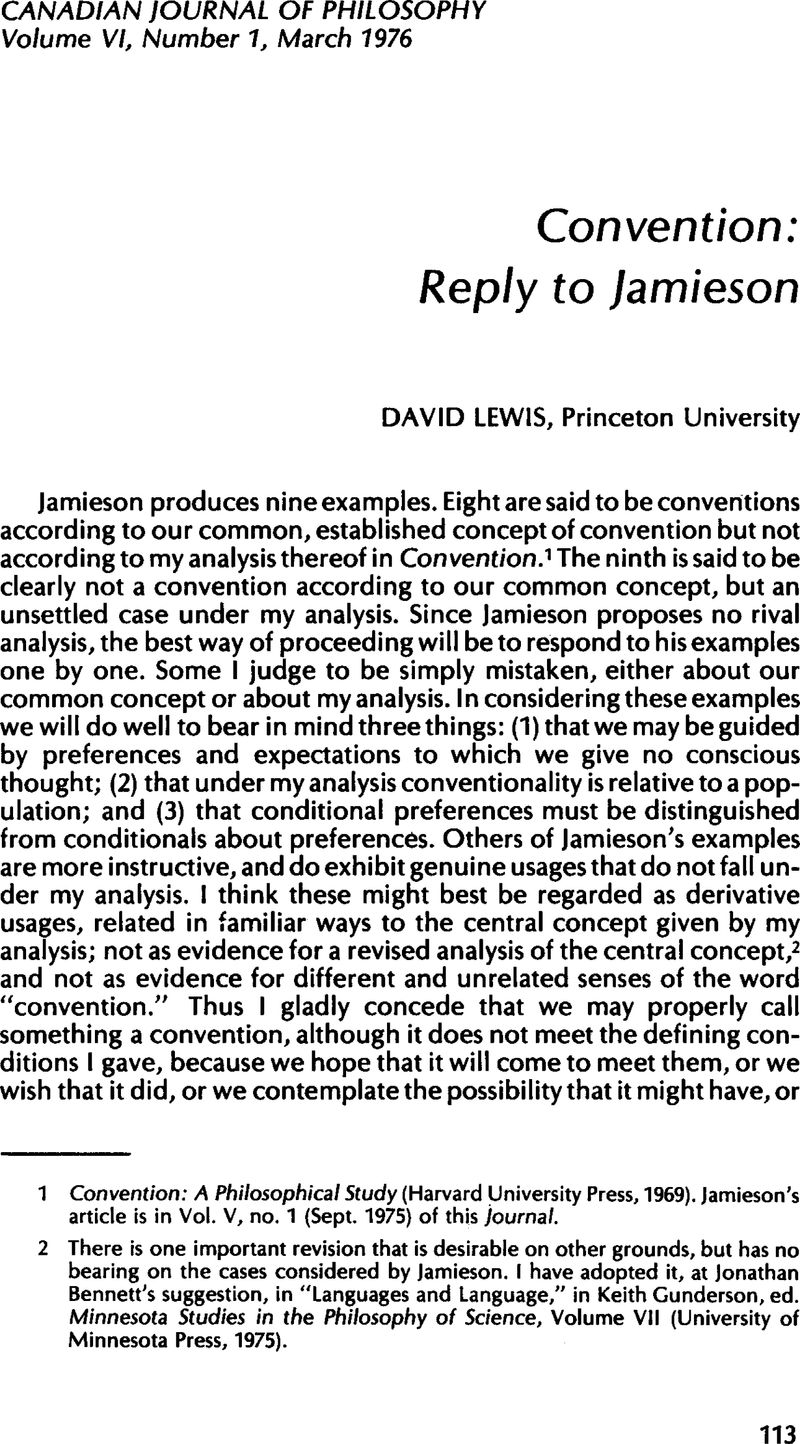Article contents
Convention: Reply to Jamieson
Published online by Cambridge University Press: 01 January 2020
Abstract

- Type
- Reply
- Information
- Copyright
- Copyright © The Authors 1976
References
1 Convention: A Philosophical Study (Harvard University Press, 1969)Google Scholar. Jamieson's article is in Vol. V, no. 1 (Sept. 1975) of this journal.
2 There is one important revision that is desirable on other grounds, but has no bearing on the cases considered by Jamieson. I have adopted it, at Jonathan Bennett's suggestion, in “Languages and Language,” in Keith Gunderson, ed. Minnesota Studies in the Philosophy of Science, Volume VII (University of Minnesota Press, 1975).
3 This is not to say that all users of any one system comprise a population in which there is a convention to use that system. I share Jamieson's suspicion that most philosophers lack the conditional preferences for conformity that my analysis ascribes to participants in a convention. I would guess that the sub-populations of philosophers in which there are established quotation conventions might be quite small.
4 A die will be thrown; I stand to win $2 if the 6 is up, $1 if the 5 is up, and nothing otherwise. I suppose the die to be fair and care only about the money I may win, so my preferences follow the computable expected payoffs. X holds iff a 2 or 6 is up, Y iff a 1 or 5 or 6 is up, and Z iff a 3, 4, 5, or 6 is up. I prefer X to Y conditionally on Z, but I prefer the conditional Z ⊃ Y to the conditional Z ⊃ X.
- 8
- Cited by




